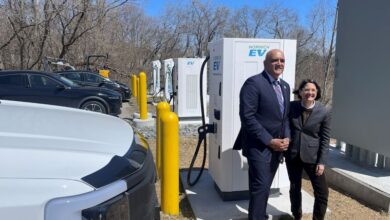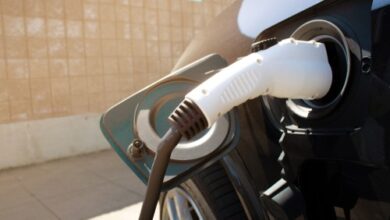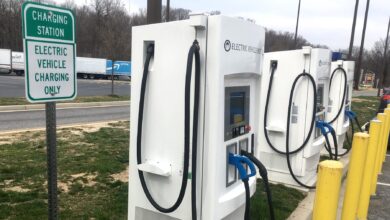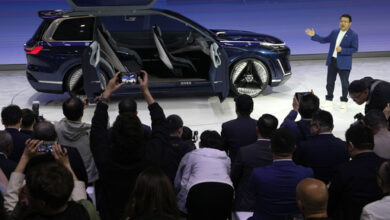China’s Seagull Leads The Way In Cheap, Well-Made Electric Cars
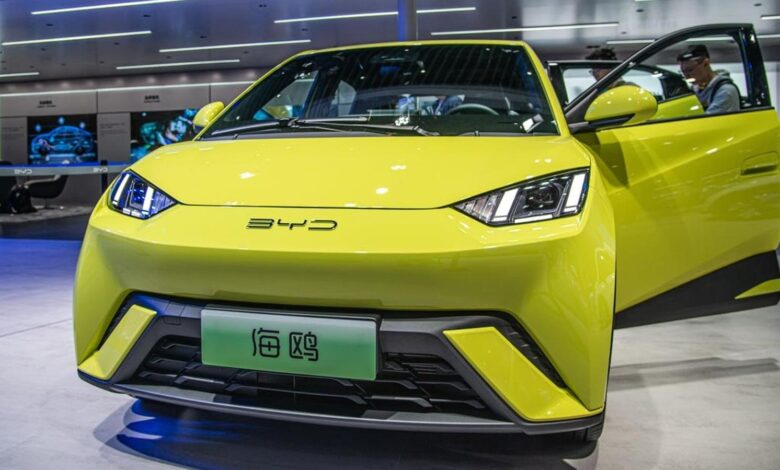
It’s called the Seagull, it’s electric and it costs only around $12,000. It already has 10,000+ preorders and you don’t get to drive one, at least not right away, unless you move to China.
The Seagull has electric automakers biting their nails, though. Tesla CEO Elon Musk told industry analysts earlier this year that Chinese EVs are so good that without trade barriers, “They will pretty much demolish most other car companies in the world.”
To add insult to injury, the Seagull is very well-made, and delivers the craftsmanship of U.S.-based electrics costing triple the price.
Smithtown, N.Y.: New Tesla electric vehicles fill the car lot at the Tesla retail location on Route … [+]
A Detroit-based firm called Caresoft Global obtained a Seagull Flying Edition from its China office and had it shipped stateside, whereupon it was immediately dissected and found hale and hearty, though its top speed is only 81 miles an hour. They also found the car weighs only 2,734 pounds – that’s a staggering 900 pounds less than the slightly bigger electric Chevy Bolt.
Caresoft reported that the Seagull has a “quality feel,” that the doors “close solidly” and that its grey faux-leather seats have stitching to match the car’s bright green exterior color – something usually found in much more expensive cars. Finally, the car has rear disc brakes, electronic stability control and six air bags, so no claim that the lower price poses a particular safety hazard holds water.
SHANGHAI, CHINA – APRIL 18: A BYD Seagull small electric car is on display during the 20th Shanghai … [+]
The Seagull, produced by parent company BYD, is just one example of Chinese ingenuity – which used to be an oxymoron in the same way “Made In Japan” was once a symbol of shoddiness until their Toyotas invaded American shores like Japanese Beatles in the late 60s. Everyone knows how that turned out. Today, Toyota is the biggest car company in the world, though technically Volkswagen has more revenue.
President Joe Biden is set to announce new tariffs today on all Chinese EVs, semiconductors, solar cells, steel, batteries and aluminum. The tariffs on EVs will expand to a whopping 100%, quadrupling the 25% currently imposed, say experts. The Biden administration’s concern is for US jobs as well as “security issues.”
WASHINGTON, DC – AUGUST 09: U.S. President Joe Biden (Photo by Chip Somodevilla/Getty Images)
One of the issues the U.S. faces are labor costs that are much higher than in China. BYD makes their own batteries using lithium iron phosphate chemistry. Those cost less, but also have a lower range than most common current lithium-ion batteries. The Seagull can go 252 miles per charge. BYD also aims for low cost and efficiency with each of its vehicles, unlike the current American electric manufacturing landscape aimed at well-heeled buyers, with accompanying high stickers.
Take a little component like the Seagull’s windshield wiper(s). There’s just one, which eliminates one motor and one arm. That adds up over time in labor and parts dollars saved.
U.S. electric designers don’t think that way. We’re still learning how to make cheaper batteries and, as of this writing, our infrastructure for reliable fast-charging isn’t where it needs to be and prevents a lot of people who cannot charge at home from buying an electric. That and the high stickers.
“Any car company that’s not paying attention to (BYD) as a competitor is going to be lost when they hit their market,” said Sam Fiorani, a vice president at AutoForecast Solutions, told Reuters. “BYD’s entry into the U.S. market isn’t an if. It’s a when.”
